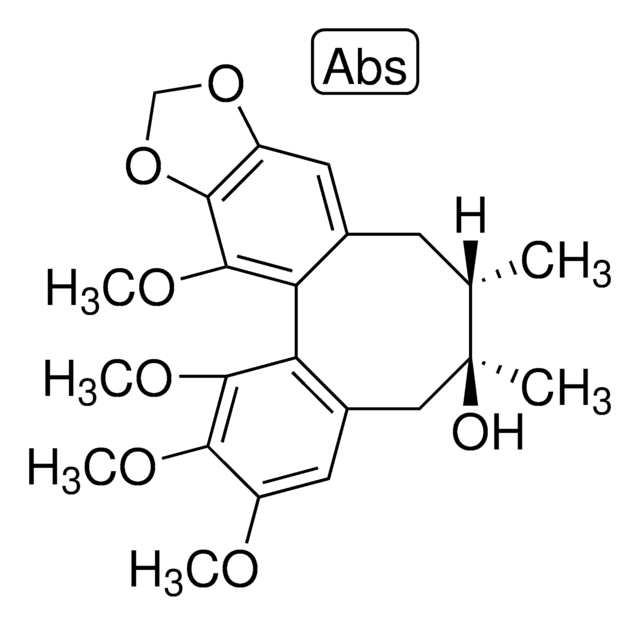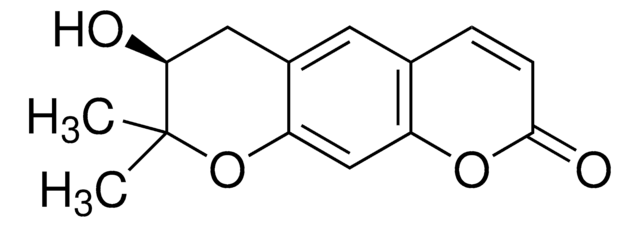SML0786
Decursin
≥97% (HPLC)
Sinónimos:
(+)-Decursin, (7S)-7,8-Dihydro-8,8-dimethyl-2-oxo-2H,6H-benzo[1,2-b:5,4-b′]dipyran-7-yl 3-methyl-2-butenoate, 3-Methyl-2-butenoic acid (7S)-7,8-dihydro-8,8-dimethyl-2-oxo-2H,6H-pyrano[3,2-g]-1-benzopyran-7-yl ester
About This Item
Productos recomendados
origen biológico
Radix peucedani
Nivel de calidad
Ensayo
≥97% (HPLC)
Formulario
powder
actividad óptica
[α]/D +120 to +160°, c = 0.5 in chloroform-d
color
white to beige
solubilidad
DMSO: 5 mg/mL, clear
Condiciones de envío
wet ice
temp. de almacenamiento
−20°C
cadena SMILES
[o]1c2c(cc3c(c2)OC([C@H](C3)OC(=O)C=C(C)C)(C)C)cc[c]1=O
InChI
1S/C19H20O5/c1-11(2)7-18(21)23-16-9-13-8-12-5-6-17(20)22-14(12)10-15(13)24-19(16,3)4/h5-8,10,16H,9H2,1-4H3/t16-/m0/s1
Clave InChI
CUKSFECWKQBVED-INIZCTEOSA-N
¿Está buscando productos similares? Visita Guía de comparación de productos
Acciones bioquímicas o fisiológicas
Características y beneficios
Código de clase de almacenamiento
11 - Combustible Solids
Clase de riesgo para el agua (WGK)
WGK 3
Punto de inflamabilidad (°F)
Not applicable
Punto de inflamabilidad (°C)
Not applicable
Elija entre una de las versiones más recientes:
Certificados de análisis (COA)
¿No ve la versión correcta?
Si necesita una versión concreta, puede buscar un certificado específico por el número de lote.
¿Ya tiene este producto?
Encuentre la documentación para los productos que ha comprado recientemente en la Biblioteca de documentos.
Artículos
We offers many products related to Nuclear Receptors (Steroids) for your research needs.
DISCOVER Bioactive Small Molecules for Nitric Oxide & Cell Stress Research
Nuestro equipo de científicos tiene experiencia en todas las áreas de investigación: Ciencias de la vida, Ciencia de los materiales, Síntesis química, Cromatografía, Analítica y muchas otras.
Póngase en contacto con el Servicio técnico







